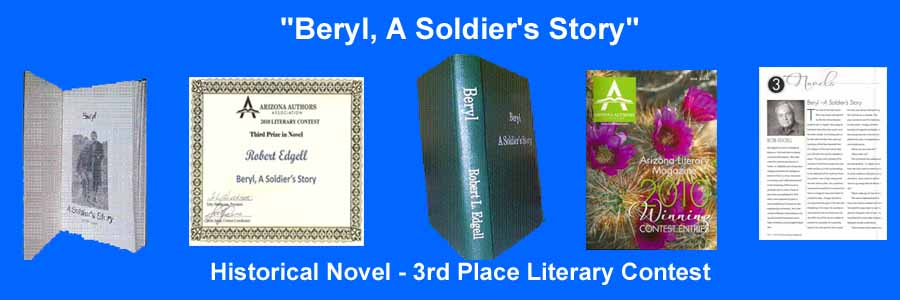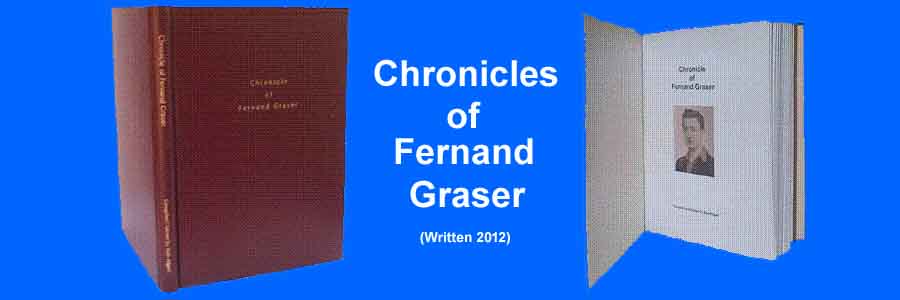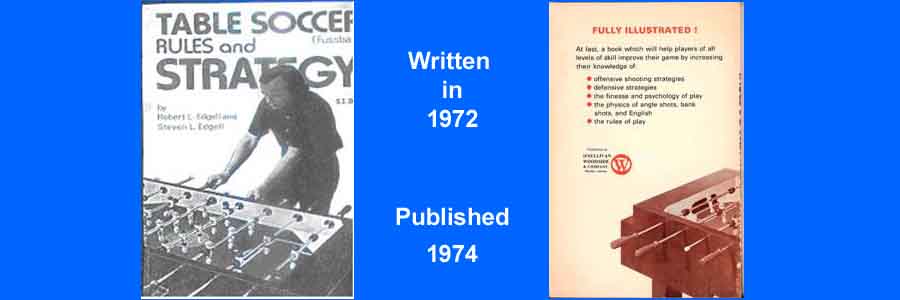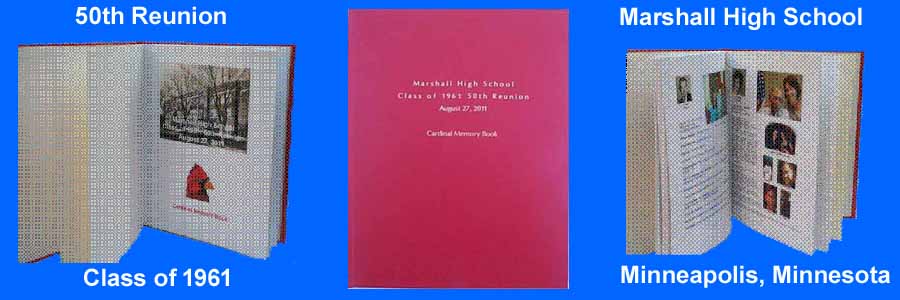Welcome to My Author Page
This page is a synopsis of my writing career. It is a small glimpse of the numberous volumes of writings over the course of my life.
Sir Wrinkles
A Short Character Study
By Bob Edgell
Letter to the Editor
James Fry
Topeka Gazette
P.O. Box 4080
Topeka, Kansas 66612
Dear Mr. Fry,
My name is Sir Geoffrey Alexander Wrinkles. Oh, I’m really not a Sir in the sense of a Lord or Duke; in fact, I gave myself the title when I turned 90 years old.
I figured that if a modern man could survive the wars, disease and turmoil of 90 years, walk without an aid such as a cane or walker and still manage one good bowel
movement a day, he had earned the right to have his peers and later generations call him ‘Sir.’ You may call me Sir Wrinkles.
I am writing to you to provide some observations on your writing style and the types of words you use in your column.
I have always loved names and words. They fascinate me; especially onomatopoeic words that always seem to roll off the tongue as smoothly as the drool off an ancient chin.
Drool is a good onomatopoeic word, so is buzz, gurgle, gargle, babbling, fart, and my favorite, whistle. Proper names can also be onomatopoeic and they have that added
quality of providing the bearer of the name another dimension to their being. Nicknames are usually bestowed at an early age by an adult who sees something in a child
that is emerging slowly, but not yet fully defined. It could be a boy or girl that receives this moniker and as they grow their personalities will gravitate to an identity
that matches their new name. Butch, Duke, Pete, Chuck, and Angel are just a few to mention. Of course you have last names like Fox and Musil that conjure up an image for
the holder to live up to and provide that reflection for the onlooker.
Then you have words like sesquipedalian, a wonderful word with both onomatopoeic quality and a certain irony. Old Daniel must have had a good laugh when he put that
in his book. The adage that tells you to not judge a book by its cover could have also mentioned that you shouldn’t judge an author by the multi-syllable words that
send you rushing to your dictionary at every paragraph. As Hemingway said to
Faulker: "big words don't make for big emotions." Personally, I don’t like these seven consonant, seven voweled words. We don’t speak them, so why should we have
to read them? I must say ‘oy vey’ even though I’m not Jewish. Why must the children of learning suffer so much? Oy vey.
You must wonder why I’m writing such a letter to the editor. Here I am
in my 90th year and for the first time in my life, I find myself writing
to a thirty-something to offer my opinion when this young soul is still
weaning and remains clueless to most of life’s puzzles. Not that 90 years will help much, but it does fill
your brain with all kinds of minutia that one can call upon for answers.
Take for instance, the other winter day when I turned on my car heater and it didn’t blow. No air, not hot or cold. So I get out my manual and needle nose pliers and
started pulling fuses. My last resort was a series of relays under the hood so I open the hood, take the cover off the relay box and pull each one. They are all good.
Leaning over the fender and looking at this old engine, I spot the housing to the blower motor. Now you would think that after 90 years of living with mechanical contraptions
a person would call upon the minutiabrain (I just coined this and you may use it royalty free) where an answer would be lying. As I leaned over looking at that housing,
I did indeed find a nugget in that minutiabrain and when it appeared, I took immediate action and pounded on that housing with my pliers. And you know young man, that
motor starting whirrrring and it has whirred ever since. Whirring, another great onomatopoeic word.
This takes me back to why I am writing to you. I read your column every day so you must be a man of letters or you at least have some kind of degree; but you know, your
education doesn’t always bleed through the ink on the pages. You seem to think that all is black and white, right or wrong, true or false, or just plain whatever you want
it to be. In your education you forgot one basic principle: The Anatomy of Gray. There is a whole world out there that you seem to overlook. The world of gray and all
that it entails when discussing humans and their events. Even the simplest of minds see gray and understand that society requires these gray areas to co-exist. Take for
instance, justifiable homicide, aggravated assault, intentional grounding, accidental drowning, bold face or white lie, or, I like this one: ‘yellow journalism.’ You seem
to have skipped the class in adverbs and adjectives. Society comes up with these modifiers to sneak in a little gray so we can better deal with all types of situations.
You avoid them in preference to your trenchant style. And I guess that is where we differ.
You see, I grew up with a name like Wrinkles and it is a good name and has served me well for these 90 years. Oh, I must admit, there were times in my youth when I would
have preferred another name, a name that the other children couldn’t make fun of or had a bad rhyme to it. Say the word wrinkles and feel your mouth and chin contort, much
like the wrinkles in a newly washed shirt: it’s quite onomatopoeic. To make things worse, my mother hated to iron so before I ever knew a piece of cloth without wrinkles,
she threw our only iron in the garbage and made her stand that wrinkles were natural and beautiful and part of the fabric of living. So I came to love my name as much as I
love the wrinkles in my shirts and pants and the wrinkles that adverbs and adjectives give us as we traverse the hills and valleys of our world. Wrinkles give us texture and
the shades of gray we require to be a just and fair people. They provide character: a natural character untouched by the myopic pressure of the iron or the pretentiousness
of a flat, unnatural surface.
You see, young columnist, you are cheating yourself by remaining in your flat world of black and white, in your starched shirt without texture or the grays that would
provide some depth to your world. As you grow older, your minutiabrain will fail you because you will only ask yourself if the fuse is good or bad and you will always
be obliged to others to fix what is wrong in your life. You will live in your world, devoid of adverbs and adjectives, without imagination and creativity, and wonder
why your career and life are stuck on page three.
I don’t expect you to understand and I certainly don’t expect you to change your two dimensional life because of this brief letter. You, like most of our society, will
continue to look at fuses and the only way you will change and make a real contribution, is if someone, or something, pounds on your housing and starts your motor whirrrring.
Sincerely,
You may call me Sir Wrinkles
Beryl, A Soldier’s Story
Phoenix, Arizona….11/06/2010……..The Arizona Author’s Association Awards Banquet was held on November 6, 2010 and I won third place in the Unpublished
Novel category for ‘Beryl, A Soldier’s Story’. The novel can be read on-line at:
http://bedgell.com/Publisher/Beryl%20A%20War%20Drama.pdf

Beryl, A Soldier’s Story is a yet-to-be-published historical novel set in WWII and is based on a few short years in the life of Kenneth Beryl Edgell,
the late Uncle of the author.
The story is set in Goodland, Kansas, England and Normandy, France. Beryl Edgell was an officer in the 175 Regiment and commanded a platoon of riflemen.
Beryl is a study in human nature as young recruits from across America mature to fighting soldiers in Normandy, France. Based on soldier’s stories and
battle reports, the historical context of the story preserves the movements of the 175th Regiment, ‘Dandy Fifth’ during their training in England, the
landing on the Normandy beach and the drive south to battle the German army in the bocage as they fight their way to St. Lo. Day by day, hour by hour,
the movements of Beryl’s platoon include the battles, missions and patrols as they encounter a well concealed German army and the snipers that are left
behind to slow the advancing Allied army.
Beryl is a young Lieutenant from Goodland, Kansas and his only experience with leadership was in High School when he led his Tennis and Football teams to
victory. He soon finds military life presenting him with new challenges as an officer and doubts begin to erode his boyhood confidence. Now he has a platoon
of 36 men and he must mold the green recruits into a fighting unit. He is joined in this task by his Staff Sergeant, Frank Deitz, who left the Catholic Seminary
at the moment of his final vows to participate in the military campaign against Hitler’s army. Sergeant Deitz is educated in dealing with people and their
problems and through a combination of psychology and his experiences in the seminary; he is able to counsel the men of the Platoon as they struggle with personal
issues and military relationships. Sergeant Deitz has his own vulnerabilities as he meets a young British girl and falls in love. It is his first girlfriend
and even though mature for his age, he is a neophyte in matters of love and romance. He had never kissed a girl romantically, let alone make love to one. Deitz,
the virile head of the platoon matches wits with Angela as she lures him to her heart.
-
Angela, the British girl who seduces Deitz and educates him on the horrors of the German bombing of London.
- Kate, the beautiful neighbor of Beryl’s village host who is engaged to Sonny, a British soldier fighting in North Africa. Kate shares her loneliness with
Beryl at the Tedworth mansion.
- Esther Copeland, the girl from Kansas who becomes Beryl’s wife and soul mate.
- Sergeant Anderson, an angry young man that must work through his anger to become a squad leader concerned with the men in his unit.
- Private Torkeldson (Tork), the farm kid from Iowa who must learn to fight and think for himself.
- Sergeant Gault, a son of a General Motors VP who contributes a unique prospective to the military and war.
- Private Davison, the bastard son of a laundry worker whose Deism and pedantry both intrigue and amuse his fellow soldiers.
- Private Love, the Georgia boy who attracts the ladies and entertains with his music and charm.
- Private Kuzinski (Ski), the Platoon clown who adds humor to the hazards of training and diffuses conflict with his comedy.
Several literary cameos are presented in the context of the story:
- Mrs. Theodore Roosevelt Junior, the mistress of Tedworth mansion and hostess for parties benefiting the soldiers.
- Lady Nancy Astor, who visits Tedworth to boost the moral of the soldiers training in England.
- General Gerhardt, Commander of the 29th Division, who inspired and cajoled his men to advance to St. Lo.
- General Cote, Assistant Commander of the 29th who stayed in the battlefield and coordinated Battalion movements.
- Colonel Goode, Commander of the 175th Infantry Regiment (Dandy Fifth) who led his men on critical missions.
Beryl combines romance, religion, intrigue, cultural clashes and the adventure of hedgerow battles with the German army in this historical tale of a platoon of men who have trained for over a year in England and must engage with the well-trained German army in the bocage of Normandy, France. The personalities of the men are exhibited by their behavior in battles as they protect their fellow squad members during the harrowing experience of war. The reader will feel the intensity of each patrol and battle as the 29th Division moves south from the beaches of Normandy to drive the German army from France.
The Prince and Pomeranian:
(First titled 'Pagenkopf'The Royal Connection)
Phoenix, Arizona….11/05/2011……..The Arizona Author’s Association Awards Banquet was held on November 5, 2011 and I won second place in the Unpublished
Novel category for ‘The Prince and Pomeranian; The Royal Connection.’
At the award's banquet, I gave a short acceptance speech explaining the inspiration for the novel. The video of the speect can be found here: https://www.youtube.com/watch?v=xV2x4EYo9_E

This full length historical novel is centered on two themes: my family history (Edgell – Deves – Pagenkopf) that dates back to Pomerania, Prussia and the second theme of the Hohenzollern monarch family who ruled the Kingdom of Prussia in the 18th, 19th and early 20th centuries.
The story begins at the Versailles Palace outside of Paris and the European leaders are assembled for a ceremony. Inside the palace apartment of the French monarchy is an old King, his two sons and his trusted advisor: the year is 1871. The King is not the French King. The King is Wilhelm I, King of Prussia. King Wilhelm is reminiscing on the many times he has had to travel to Paris to finish a war started by the French.
The story then takes the reader back in time to 1815 and the fields of Belgium. Wilhelm is an 18 year old cavalry captain under the command of Field Marshall Blucher, the appointed leader of the Prussian army.
We are then introduced to Peter Pagenkopf and his son Martin. Peter is
in the Pomeranian cavalry unit and Martin is the vassal to Prince
Wilhelm. The story develops through the battles in Belgium against
Napoleon Bonaparte and we learn more and more about the
personalities and characters of Wilhelm, Peter and Martin. After the
war, we follow Wilhelm and the history of the Hohenzollern monarchy
and parallel it with the Pagenkopf family as they build their farm
estate and become more involved in the intrigues of Prussian
diplomacy and politics. There is a hint of romance in the story,
revealing a special connection between the Hohenzollern and
Pagenkopf families.

There are many key historical European figures
in the novel: Hapsburg family, Prince Metternich, Alexander and
Nicholas Romanov, King Ludwig of Bavaria, Napoleon I, II and III,
General Ney and General Vandamme, King Frederick Wilhelm of Prussia,
Crown Prince Frederick and Prince Wilhelm, Charlotte Hohenzollern
(married to Nicholas Romanov), Princess Victoria (daughter of Queen
Victoria and wife of Crown Prince Frederick), King Louis XVIII,
Prince of Orange and many more. The reader will be entertained and
enjoy the rich history of this period in European life: a period of
political intrigue, wars, changing borders and of course, the
industrial revolution. There are similarities between the strife in
America between the North and South and the struggles in the German
states between the machinery manufacturing regions and the agrarian
movements in Europe. Finally, the reader will see the American civil
war from a European perspective and gain new insight into the
character of the Prussian and German people and leaders.
.
Chronicles of the Edgell Family

Adult members of the Edgell family wrote their life stories and contributed their special photographs for this project.
The project not only provided the Edgells a way to preserve their
own personal history, it also became an assembly of the numerous
photographs held by all the members. The result was a leather bound book of the Edgell family chronicles.
Chronicles of Fernand Graser

I first met Fernand (Fred) Graser at the Phoenix Tennis Center in 2010. We were participating in a casual ‘drop in’ round robin match with other ‘drop in’ members. Fred was 81 years old in 2010 and still plays a good game of tennis. A player that lives near Fred mentioned to me that Fred spoke English, French and German and had the distinction of being in the German army during WWII and later he was in the French army. My second language is German and Fred’s story piqued my curiosity. We started to talk and several months later I finished his chronicles: 162 pages and most of Fred’s prize photographs.
Table Soccer Rules and Strategy

Chronicles of the Edgell Family

Table Soccer Rules and Strategy (Published 1974)
My first published work was a book titled 'Table Soccer Rules and Strategy'. In 1974 a faddish game began to emerge called Fussball. Even though the game has been around since World War One, its popularity didn’t emerge until the 1970s. At the height of its popularity, Fussball was a national pastime among the young and 1/2 million dollar tournaments were held in the United States. My brother Steve and I got 'hooked' on the game during college in 1971 and 1972 and began writing the book. Steve was finishing his dissertation for his PhD and I was taking post graduate courses at the University of Minnesota. In our spare time we either played Fussball at the 'Big Ten Bar' on campus, or we were writing the book. After college, we both moved to Phoenix, Arizona and found a local publisher. The book was published in 1974 by O'Sullivan Woodside and Company and sold over 20,000 copies. There are many references to the book on the World Wide Web and it is commonly referred to as an 'obscure little book'. One would expect such a label after 32 years and the book out of print for 20 years. Still, it was the first book to address the rules and the first book to teach novice players about the strategy and psychology of the play. And, yes, that is me on the cover eons ago.
Marshall High School Memory Book

In the summer of 2011 I had the pleasure of compiling and editing the Memory Book for my 50th high school reunion. The reunion committee had sent out letters and invitations to all the classmates asking them to send in their current ‘bio’ and photos to be included in the book. The compiling of the material involved scanning many of the pages of our yearbook from 1961 and putting the material in the manuscript. Each student photo from the yearbook had to be cropped from the page so it could be in the heading of each classmate’s individual ‘bio’ page. Also, photos from events and sports were assembled into a collage. There was a page devoted to those who served in the military and pages devoted to the known deceased, to the classmates we couldn’t locate and the classmates we located but didn’t respond. The memory book was finally put to print before the class reunion: 101 pages and a real pleasure to perform the task.
The complete memory book and additions since the reunion can be found on this web page: https://bedgell.com/marshallmemory/marshallmemory/index.html
The End








